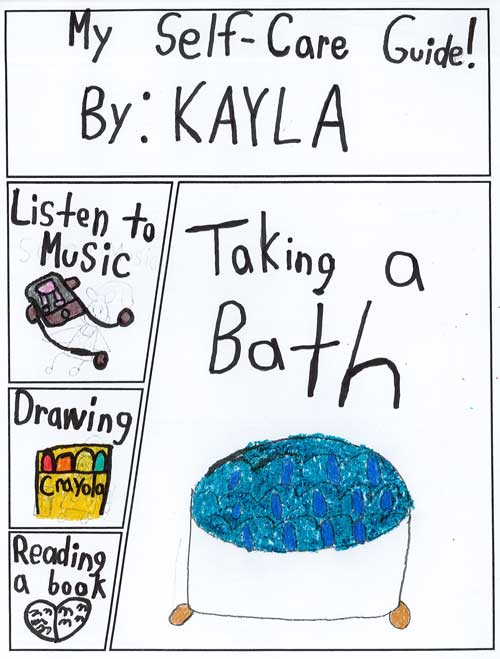Self-care: The antidote to compassion fatigue

by Janet Perlis and Despina Vassiliou
As parents or guardians, we give much of our energy to care for others. However, to be able to continue to do so, we need to replenish our stores of energy by taking care of ourselves and engaging in activities that nourish us. Self-care refers to things we can do on a regular basis to promote physical and mental health.
It includes employing regular maintenance and preventive tasks to address the stressors we face. We ensure our cell phone is working optimally by recharging it; we must do the same for ourselves. We do not only engage in self-care to be stronger ourselves, but to be able to care for our children and others. If we do not strengthen ourselves, we will not be able to care for those who need us the most. Therefore, self-care can be described as the antidote to stress or compassion fatigue – caring for others until we are depleted. There are a few steps we can take:
Step 1: Build a repertoire of activities that are calming, soothing or relaxing. There are four types of self-care: (a) Physical: exercising, eating and sleeping well; (b) Emotional: finding something to laugh about, being able to say no to requests; (c) Social: connecting with friends and family, avoiding isolation; and (d) Spiritual: engaging in religious activities or turning inward and engaging in self-reflection. Every person benefits from one or a combination of them. It is a very personal choice.
Step 2: Practice. Engage in routines from your repertoire that promote self-care. By doing so daily, we strengthen ourselves emotionally and physically so that when a stressor does come up, we are more fortified. Much like doing exercise helps strengthen our muscles, engaging in self-care activities helps us build strength physically and emotionally.
Step 3: Identify the signs of stress such as feeling tired, snapping at family and friends, being indecisive, coping with changes in sleep or appetite, suffering from headaches or stomachaches or not being able to concentrate on tasks. As soon as we feel any of these things, there is something wrong and we must take action to care for ourselves. With younger children, teach them how to identify and label these feelings and coach them in self-soothing techniques.
Step 4: Adjust routines to make time to care for ourselves. When stressors come into play, the first thing we do is abandon our own self-care because everything else seems to be more important. However, balancing a stressor with a self-care technique helps us re-charge our battery to be able to face whatever challenge has been placed in front of us. If we have a stressor like a heavy workload, we may have to remind ourselves to eat something, take a break, have a bath or go for a run – something that helps us re-centre ourselves. What we choose will likely depend on the situation and the time we have, but simply taking a moment (for example, a few seconds to practice breathing exercises) may be enough to help us get through the next step.
Step 5: Seek help before things become too overwhelming. Reach out to a friend, family member or to a professional, such as a therapist, to help support you.
Self-care is a sign of strength and self-respect, and it is an opportunity to model this to your family. We hope that we have inspired you to find ways to engage in self-care to continue to be the best you that you can be.
Janet Perlis, M.Ed. and Despina Vassiliou, Ph.D. are psychologists with the English Montreal School Board.









